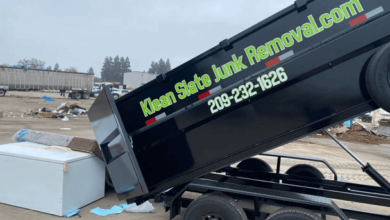How Property Management Tips Can Improve Your Rental Business

Managing rental properties can be both rewarding and challenging. As a property manager or owner, your primary goal is to maximize profits while maintaining the quality and desirability of your properties. Effective property management tips for rentals is key to achieving this balance. In this blog, we’ll explore various property management tips that can enhance your rental business and help you achieve long-term success.
Screen Tenants Thoroughly
The foundation of a successful rental business lies in having reliable tenants. Proper tenant screening can prevent numerous issues down the road. Here’s how to do it:
Credit Checks
Assess the financial responsibility of potential tenants by reviewing their credit scores and histories. A good credit score often indicates that a tenant is financially responsible and less likely to default on rent payments.
Background Checks
Check for any criminal history or past evictions. This can help you avoid tenants with a history of problematic behavior or non-payment.
References
Contact previous landlords and employers to verify the tenant’s rental history and employment stability. This provides insight into the tenant’s reliability and character.
Income Verification
Ensure that the tenant’s income is sufficient to cover the rent. A common guideline is that a person of rent should be no more than 30% of their income. This reduces the risk of rent payment issues.
Thorough screening helps in selecting tenants who are more likely to pay rent on time, take care of the property, and fulfill lease obligations, thereby reducing turnover and increasing stability in your rental business.
Establish Clear Lease Agreements
A well-drafted lease agreement sets the expectations for both you and your tenants. Ensure that your lease covers:
Rent Amount and Due Date
Clearly state the amount of rent and the due date each month. This avoids confusion and ensures timely payments.
Security Deposit
Specify the amount, conditions for its return, and how it will be used. This protects you against damages or unpaid rent.
Maintenance and Repairs
Define the responsibilities of both the landlord and the tenant. Clear guidelines prevent disputes over maintenance issues.
Pet Policies
Include any restrictions or additional deposits required for pets. This ensures pet-related damages are covered.
Rules and Regulations
Outline any property-specific rules to maintain order and prevent disputes. These may include noise restrictions, parking rules, and policies on alterations.
A clear lease agreement helps in preventing misunderstandings and disputes, fostering a harmonious landlord-tenant relationship.
Regular Property Maintenance
Keeping your property in good condition not only attracts and retains tenants but also prevents costly repairs in the future. Implement a regular maintenance schedule that includes:
Seasonal Maintenance
Address tasks specific to each season, such as HVAC servicing in the fall and spring. Regular servicing ensures systems run efficiently and reduces breakdowns.
Routine Inspections
Conduct periodic inspections to identify and address minor issues before they become major problems. This proactive approach saves money and prevents tenant dissatisfaction.
Prompt Repairs
Respond quickly to repair requests to maintain tenant satisfaction and avoid property damage. Delayed repairs can lead to further damage and higher repair costs.
Regular maintenance ensures that your investment property remains in top condition, enhances tenant satisfaction, and preserves the value of your investment.
Effective Communication
Good communication is essential for a positive landlord-tenant relationship. Maintain open lines of communication by:
Being Accessible
Provide tenants with multiple ways to reach you, such as phone, email, or a property management portal. Being reachable makes tenants feel valued and heard.
Regular Updates
Keep tenants informed about any changes or upcoming maintenance work. Transparency builds trust and reduces tenant anxiety.
Listening to Concerns
Address tenant concerns promptly and professionally to build trust and rapport. Acknowledging and resolving issues quickly improves tenant retention.
Effective communication helps in building a strong relationship with your tenants, leading to higher satisfaction and lower turnover.
Utilize Property Management Software
Property management software can streamline your operations and improve efficiency. Look for software that offers:
Online Rent Collection
Allow tenants to pay rent online, for example, making it convenient for them and ensuring timely payments. Online systems reduce the chances of late or missed payments.
Maintenance Requests
Enable residential tenants to submit maintenance requests online and track their status. This system ensures that requests are handled efficiently and transparently.
Tenant Screening
Integrate tenant screening tools to simplify the application process. Automated screening saves time and improves accuracy.
Accounting and Reporting
Manage your company and finances and generate reports to keep track of your business performance. Accurate financial records are essential for profitability and tax compliance.
Property management software reduces administrative burdens, increases efficiency, and enhances tenant satisfaction.
Stay Compliant with Laws and Regulations
Keeping up with local, state, and federal laws is crucial to avoid legal issues. Stay informed about:
Fair Housing Laws
Ensure your rental practices do not discriminate based on race, color, national origin, religion, sex, familial status, or disability. Non-compliance can lead to costly lawsuits and penalties.
Landlord-Tenant Laws
Understand the legal requirements regarding security deposits, evictions, and habitability standards. Adhering to these laws protects you from legal disputes.
Building Codes and Safety Regulations
Ensure your property complies with all building codes and safety standards. Regular inspections and updates prevent legal and safety issues.
Compliance with laws and regulations protects your business from legal troubles and builds a reputation as a fair and responsible landlord and client.
Market Your Property Effectively
To attract high-quality tenants, you need to market your property effectively. Use the following strategies:
Online Listings
List your property on popular rental websites with high-quality photos and detailed descriptions. Professional photos and detailed listings attract more inquiries.
Social Media
Utilize social media platforms to reach a wider audience. Social media marketing can target specific demographics and increase visibility.
Referral Programs
Offer incentives to current tenants or real estate agents for referring new tenants. Referrals often lead to reliable tenants and faster occupancy.
Read also: Empowering Small Businesses: Digital Transformation Services for SMBs
Signage
Place “For Rent” signs in visible locations to attract local renters. Traditional methods still play a crucial role in attracting nearby tenants.
Effective marketing ensures higher occupancy rates and attracts quality tenants who are likely to stay longer.
Set Competitive Rental Rates
Pricing your rental property competitively is essential to attract tenants while maximizing your income. Conduct a market analysis to determine the appropriate rent for your area by:
Comparing Similar Properties
Look at the rental rates of comparable properties in your neighborhood. Competitive pricing attracts more inquiries and reduces vacancy periods.
Considering Property Features
Take into account the unique features, services and amenities your property offers. Properties with desirable features can command higher rents.
Adjusting for Market Conditions
Be flexible and adjust your rates based on current market demand and trends. Understanding market dynamics helps in setting optimal rental rates.
Setting the right rental price ensures you attract quality tenants while maximizing your revenue.
Develop a Proactive Lease Renewal Strategy
Retaining good tenants is more cost-effective than finding new ones. Encourage lease renewals by:
Offering Incentives
Provide incentives for leasing, such as rent discounts or upgrades for renewing the lease. Small incentives can make tenants feel appreciated and encourage them to stay.
Early Renewal Notices
Send renewal notices well in advance to give tenants ample time to decide. Early communication reduces uncertainty and helps in planning.
Addressing Tenant Needs
Listen to tenant feedback and address any concerns that may impact their decision to renew. Proactively addressing issues improves tenant satisfaction.
A proactive lease renewal strategy reduces vacancy rates and retains reliable tenants, ensuring steady income.
Maintain Financial Discipline
Sound financial management is crucial for the long-term success of your rental business. Implement the following practices:
Budgeting
Create a budget for each property, accounting for maintenance, repairs, and other expenses. A detailed budget helps in managing finances effectively.
Reserve Funds
Set aside funds for unexpected repairs or vacancies. Having a reserve fund provides financial stability and reduces stress.
Regular Reviews
Periodically review your financial statements to identify areas for improvement and ensure profitability. Regular reviews help in making informed decisions.
Maintaining financial discipline ensures that your rental business remains profitable and resilient to economic fluctuations.
Enhance Tenant Experience
Providing a positive tenant experience can significantly impact tenant retention and satisfaction. Here are some ways to enhance tenant experience:
Move-In Experience
Ensure a smooth move-in process by providing clients a clean, well-maintained property and clear move-in instructions. A positive first impression sets the tone for the tenancy.
Community Engagement
Foster a sense of community by organizing events or providing a community bulletin board. Engaged tenants are more likely to stay and take care of the property.
Customer Service
Treat tenants with respect and professionalism. Excellent customer service can turn tenants into long-term residents, owners and advocates for your property.
Enhancing the tenant experience leads to higher satisfaction, reduced turnover, and positive word-of-mouth referrals.
Implement Energy-Efficient Practices
Energy-efficient practices can reduce operating costs and appeal to environmentally-conscious tenants. Consider the following:
Energy-Efficient Appliances
Install energy-efficient appliances to reduce utility costs. Tenants appreciate lower utility bills and modern appliances.
Insulation and Windows
Improve insulation and upgrade windows to enhance energy efficiency. Well-insulated properties are more comfortable and cost-effective.
Water-Saving Fixtures
Install water-saving fixtures to reduce water consumption. Lower utility bills benefit both you and your tenants.
Energy-efficient practices lower operating costs, increase property value, and attract tenants who value sustainability.
Plan for Property Improvements
Regular property improvements can increase the value and appeal of your rental properties. Develop a long-term improvement plan that includes:
Modernizing Interiors
Update kitchens, bathrooms, and flooring to make the commercial property more attractive. Modern amenities attract higher rents and quality tenants.
Curb Appeal
Enhance the exterior appearance with landscaping, lighting, and fresh paint. Good curb appeal creates a positive first impression.
Technology Upgrades
Offer amenities such as smart home devices and high-speed internet access. Technologically advanced properties appeal to a broader range of tenants.
Planning and implementing property improvements ensure your rental properties remain competitive and your property owners desirable.
Frequently Asked Questions
What is the importance of tenant screening?
Tenant screening is crucial because it helps you select reliable tenants who are likely to pay rent on time, take care of the property, and fulfill lease obligations. Proper screening reduces the risk of non-payment, property damage, and high turnover rates.
How often should I perform property maintenance?
Regular maintenance should be performed seasonally and as needed. Conduct routine inspections periodically to identify and address minor issues before they become major problems. Promptly responding to maintenance requests also helps maintain the property in good condition.
What should be included in a lease agreement?
A lease agreement should include the rent amount and due date, security deposit details, maintenance and repair responsibilities, pet policies, and any property-specific rules and regulations. Clear terms prevent misunderstandings and disputes between landlords and tenants.
How can property management software benefit my rental business?
Property management software can streamline operations by offering online rent collection, maintenance request tracking, tenant screening, property management services and accounting and reporting features. It increases efficiency, reduces administrative burdens, and enhances tenant satisfaction.
How do I set competitive rental rates?
Conduct a market analysis to compare rental rates of similar properties in your area. Consider the unique features and amenities of your property and adjust rates based on current market demand and trends. Competitive pricing attracts quality tenants and reduces vacancy periods.
What are some effective marketing strategies for rental properties?
Effective marketing strategies for rentals include listing properties on popular rental websites with high-quality photos, utilizing social media platforms, offering referral programs, and placing “For Rent” signs in visible locations. These methods increase visibility and attract quality tenants.
Why is financial discipline important in property management?
Maintaining financial discipline ensures long-term success by helping you manage expenses, set aside reserve funds for unexpected costs, and review financial statements regularly. Sound financial management keeps your rental business profitable and resilient to economic fluctuations.
How can I enhance the tenant experience?
Enhance the tenant experience by ensuring a smooth move-in process, fostering community engagement and support, and providing excellent customer service. A positive tenant experience leads to higher satisfaction, reduced turnover, and positive word-of-mouth referrals.
What are the benefits of implementing energy-efficient practices?
Energy-efficient practices reduce operating costs, increase property value, and appeal to environmentally-conscious tenants. Installing energy-efficient appliances, improving insulation, and using water-saving fixtures lower utility bills and attract tenants who value sustainability.
How should I plan for property improvements?
Develop a long-term improvement plan that includes modernizing interiors, enhancing curb appeal, and offering technology upgrades. Regular property improvements keep your rental properties competitive and desirable, attracting higher rents and quality tenants.
Conclusion
Implementing these property management tips can significantly improve your rental business. By screening tenants thoroughly, maintaining clear lease agreements, staying on top of property maintenance, and utilizing technology, you can enhance tenant satisfaction, reduce vacancies, and maximize your rental income. Staying compliant with laws, marketing effectively, setting competitive rates, and maintaining financial discipline will further ensure your success in the competitive rental market.
By following these best practices, you can build a reputation as a responsible and reliable landlord and property managers, ultimately leading to a thriving and profitable rental business. Investing time and effort into effective property management not only benefits your tenants but also enhances the overall value and profitability of your rental properties.





